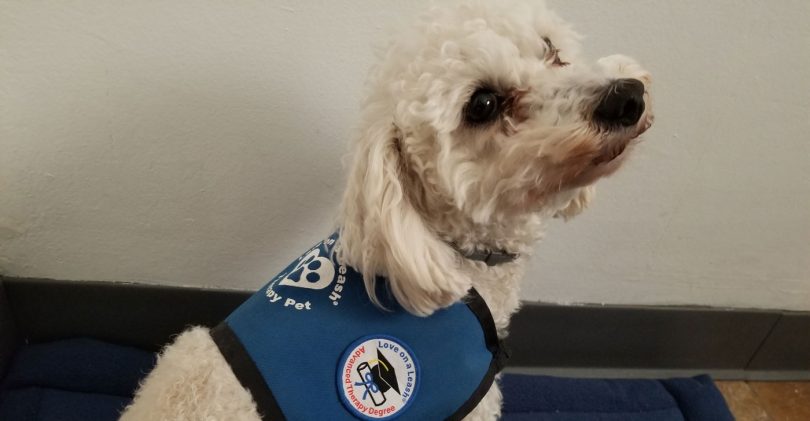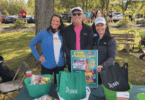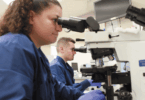Participants in selected cancer support groups—one for patients in treatment and the other for those in remission—will soon be welcoming new visitors. The specially trained dogs of BARK-9 Therapy Dogs and their handlers are launching a pilot program to see if the patients will benefit from spending time with the four-footed friends.
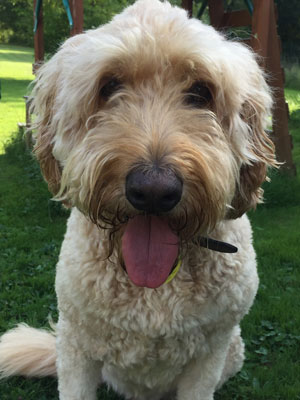
Goldendoodle Hunter is a member of the BARK-9 team.
“A few interested patients brought the idea of therapy pets to the attention of our social workers,” says Jennifer Gusse, RN, BSN, Director of Oncology Services for UHS hospitals. “We thought the support groups were the easiest place for us to start and get feedback from the patients about the program before we take it to our outpatient infusion center.”
Not just any dog can be part of the program. “The pet owners have to be vetted by the UHS volunteer service and the dogs have to be registered with a recognized therapy dog organization,” says Roxanne Shank with BARK-9 Therapy Dogs, a volunteer organization that will coordinate the pet visits with UHS.
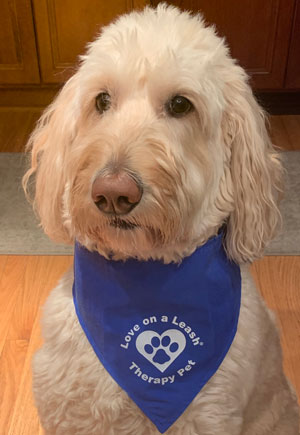
Charlie the goldendoodle is another member of BARK-9.
While BARK-9 doesn’t do the dog training, it relies on the rigorous training offered by the pet therapy organizations. “All the registries have a pretty involved process of evaluating the dog’s temperament and provide basic obedience training,” reports Ms. Shank. In addition, the handlers and dogs have several home visits from the trainers to ensure the team will be a good fit for working with the public.
Ms. Gusse says that the program might be expanded to include visits at the UHS Medical Oncology chemotherapy infusion center. “Patients will be able to tell the receptionist at check-in that they’d like a canine visitor, and they’ll receive a paw print sticker to put on their infusion bay wall,” she says.
The hope underlying the program, of course, is that cancer patients will experience stress reduction and a sense of comfort by interacting with the dogs.
“Dogs can read people’s emotions,” says Ms. Shank. “My dog has never really been a cuddler by nature, but he will sit with children reading or a hospice patient. It seems like the more they need him, the more he snuggles.”

